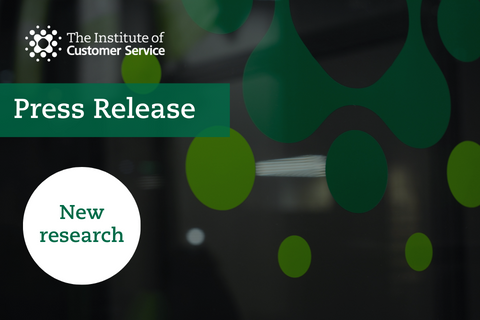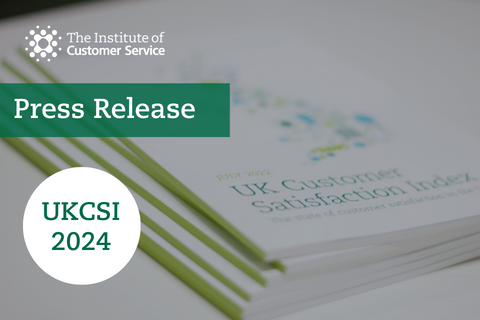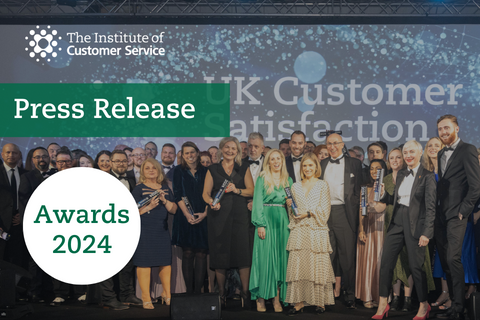UK public sector leaders are calling for a shared vision for improving customer service, according to a new report from the Institute of Customer Service. The report also finds that there is an ambition for the UK public sector to be seen as a world leader, and that customer service strategy is essential in achieving this.
‘Citizens and Customers: Further Building the Case for Customer Service in the Public Sector‘, based on qualitative responses from 6,000 customers and 24 in-depth interviews with public sector leaders, reveals the unique set of challenges facing organisations that deliver public services. It also defines what excellent customer service looks like in the context of the public sector and makes specific recommendations about how organisations and government can ensure a sustainable focus on customer service to citizens.
The key conclusions of the report include: Rising customer expectations and demands need to be met, but financial pressure poses significant challenges for public sector organisations. As one public sector leader said in the report: “It is not a question of doing the things we would like to do. It is a question of doing the things we can do.”
Leaders across the public sector say that improving customer service is a central strategic objective, but this needs to be done in such a way that it improves customer outcomes while also reducing inefficiencies. “If we can reduce the amount of money we spend on public services, whilst increasing their effectiveness and their efficiency, that’s a big gain for us,” said another respondent. And investing in customer service strategy is seen as key to continuing to meet rising customer expectations in a sustainable, world-class way: “Given the amount of money that goes through the public sector, this [customer service] is an important issue for our competitiveness; it’s not just an issue that is nice to have.”
The report highlights that excellent customer service in the public sector requires not only consistently high standards in individual organisations, but also focused and systematic collaboration across inter-connecting agencies, departments and partnerships. The report also identifies the unique challenges faced by many organisations delivering public services. Often public service organisations provide services to vulnerable individuals who have no choice of alternative provider; sometimes they have a statutory obligation to provide services to people or groups who do not seek their involvement.
The public sector is one of the lowest performing sectors in the Institute’s bi-yearly UK Customer Satisfaction Index, albeit with a significant variety between different types of organisation. However, the importance of building a customer focused culture in the public service based on insight about customer needs, proactive employee engagement, simpler processes and skills in emotional intelligence and business improvement, has never been more acute.
Jo Causon, CEO of the Institute of Customer Service, said: “We have entered a critical period of change for the public sector. In a context of economic pressures and rising demand, many organisations in the public face painful choices about how to maintain levels and quality of service, as well as plan for future requirements. Many people working in the public sector work incredibly hard to deliver services in very challenging circumstances. Our research highlights the importance of spreading best practice, benchmarking inside and outside the public sector and developing new models of collaboration to deliver better customer service, efficiencies and quality of outcomes.”
Causon adds: “In order to deliver a shared vision of excellent customer service across the public sector there needs to be a consensus and commitment across political parties, a strategic, long-term focus with continuity of leadership across the public sector. Customer service needs to be a central objective for organisations with leadership accountability and personal objectives linked to customer service at all levels.’ ‘Citizens and Customers: Further Building the Case for Customer Service in the Public Sector’ concludes with a set of practical recommendations to embed a customer service ethos within organisations. These include:
– Building a customer-focused culture in organisations, focusing especially on customer insight; co-creation of services with customers; simpler processes; employee engagement; recruiting employees who reflect the diversity of the communities they serve- Developing skills and capabilities in key areas including emotional intelligence; coaching and people-management skills; business improvement.
– Harnessing information technology to improve services
– Data transparency to provide better information about performance and benchmarking and enable a more coherent, transparent approach to investment or rationalisation decisions
– Measuring the customer experience
– Encouraging all government departments and agencies to undertake independent customer service accreditation
– Publishing an independent benchmark of customer service performance of government agencies based on a consistent set of customer service measures



Comments (0)